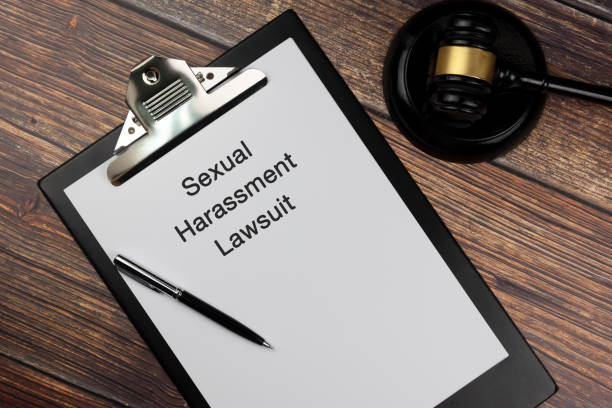An example is the young employee doesn’t mind a kiss on the cheek, a greeting by way of a hug, explicit details of what they got up to on the weekend, by fellow employees of the same age. (Is it sexual harassment if he is an older man? What Do I Do? We will try and explain where the laws are at, plus the changing culture of the workplace considerations). A eminently older person see this and doesn’t see a problem joining in with like behaviour, others are doing it, why not? The young person is aghast, this is someone my uncles age, or fathers age, i didn’t ask for this. What happens next?
In order for sexual harassment to be found, there are three elements that must be satisfied under state and federal legislation:
- Unwelcome behaviour
- Of a sexual nature
- That a reasonable person in the circumstances would have anticipated to cause offense, humiliation or intimidation to the individual who was sexually harassed.
However, the issue is whether it is considered sexual harassment if the conduct is acceptable from some people, but not from others (i.e. older men). The scenario is as follows: you have frequent banter with the other men in your office and you do not mind receiving hugs from them, but when one of the older men try to hug you, it feels uncomfortable, to say the least.

Issue 1: Banter in the Workplace
The presence of frequent sexualized banter in the workplace may also constitute sexual harassment if such language and innuendos make you feel uncomfortable or distressed. A work environment that is permeated with sexual banter, crude conversation and offensive jokes, would be considered a sexually hostile work environment.[1] If you are witnessing persistent sexualised comments that are causing you to feel uncomfortable or excluded within the workplace, even of the comments are not directed towards you, they may constitute unlawful sexual harassment.[2]
In Bennett v Everitt, the court stated that every employee has the “right to employment without sexuality or attempts at the introduction of sexuality, either direct or indirect” (at 280).[3] This means that all employees have the right to enjoy their workplace free from any sexualised acts directed towards them, as well as such banter, jokes and language that is expressed more generally, but still indirectly makes the employee feel uncomfortable.
This principle was expanded upon by the Equal Opportunity Tribunal of Western Australia in Horne v Press Clough Joint Venture where the Tribunal stated that:
“[i]t is now well established that one of the conditions of employment is quiet enjoyment of it. That concept includes not only freedom from physical intrusion or from being harassed, physically molested or approached in an unwelcome manner, but extends to not having to work in an unsought sexually permeated work environment” (at 77).[4]
Equal Opportunity Tribunal of WA
But what if you have no issues with the language and conversation in the workplace? What if you do not mind receiving hugs and engaging in this banter with some people, but not others? What if the issue is whether it is considered sexual harassment only when the conduct comes from an older male? The question then turns on whether such conduct is unwelcome and whether a reasonable person would find it to be offensive, humiliating or intimidating.

Issue 2: Unwelcome Conduct
Unwelcome conduct is defined as conduct that was not invited or solicited by the employee and which is regarded by the employee as being undesirable or offensive.[5] This is a subjective inquiry into the reactions and responses of the individual alleging sexual harassment. Therefore, the issue is whether you, individually, found the conduct from the older man to be undesirable or offensive.
The case law has established that it does not matter whether this conduct offends others of whether it has been previously accepted within the work environment.[6] Even if you accept hugs and engage in banter with your other colleagues, this does not mean that such conduct is acceptable to you, regardless of who it comes from. In fact, in Hall & Ors v A. A. Sheiban Pty Ltd & Ors, Justice Lockhart stated:
“In principle, advances by an employer, particularly if there is a series of them, all of which may have been tolerated by an employee out of sympathy or out of lack of choice, and each of which or all of which may have been tolerated by the majority of women, may nevertheless [constitute sexual harassment] if they otherwise ‘vex and annoy’ so as to amount to sexual harassment”.
Put simply, even if you may have accepted the conduct from other people, or from the same person in the past, this does not necessarily preclude from a finding of sexual harassment. In fact, this difference in age, seniority or personal power may be what renders the conduct to be unwelcome and unsolicited.
Issue 3: The Reasonable Person
A finding of sexual harassment also requires that a reasonable person must have anticipated that the complainant (i.e. the person who was harassed) would be offended, humiliated or intimidated by the conduct in question. The argument may be raised that you were accepting of the hugs and banter from your other male colleagues and therefore, a reasonable person would not believe that you would be offended, humiliated or intimidated simply because an older man exhibited the same behaviour towards you.
The relevant state and federal legislation does not specify the factors and circumstances that may be relevant in determining reasonableness, such as age, ethnicity, or any disabilities. However, these may all be considered in adducing whether the conduct would reasonably cause offense or humiliation to you, as well as the context in which the sexual harassment occurred, and the nature of the relationship between the parties.
In Horman v Distribution Group Limited [2001] FMCA 52, the respondents argued that because the complainant had used crude language and engaged in the behaviour that she was complaining of, she was a willing participant and there had been no sexual harassment. However, Federal Magistrate Raphael rejected this argument and found that a reasonable person in her position would have been offended, humiliated and intimidated by the actions and remarks of the respondents, even though she had participated in some of them herself. Speaking about the complainant’s own use of crude language, he stated:
“I am not sure that a reasonable person would not anticipate that the applicant would be offended, humiliated or intimidated by bad language solely because the applicant herself also used it from time to time. ‘Giving as good as you get’ is often the only way in which a person feels that he or she can resist unpleasant language and would not, to my mind, indicate to a reasonable person, the type of acceptance of the language which would relieve a respondent of liability”.[7]
Federal Magistrate Raphael
Therefore, the Federal Magistrate found that just because the complainant had engaged in similar conduct in the past, this did not mean that sexual harassment did not exist. By extension, if you are accepting of hugs and sexual banter from your other colleagues, this does not mean that you are accepting of it from everyone. If an older male engages in such conduct towards you and this makes you feel offended, humiliated or intimidated, then the mere fact that you hug and joke with your other male colleagues will not prevent a finding of sexual harassment.
Issue 3.1: Its not sexual harassment. What if he argues that he was just being friendly or compassionate towards me, its no?
To adjust the scenario, what if the older male will be retiring soon and chose to give you a hug at his farewell party? He may have hugged the other male and female employees working there, but his conduct made you feel uncomfortable.
A similar scenario occurred in the case of Smith v Hehir and Financial Advisors Aust Pty Ltd [2001] QADT 11where a female employee complained about the company manager approaching her while she was on the phone, massaging her shoulders and putting his arm on her shoulder when she was upset at work, amongst other actions. The argument was run that he had been merely compassionate towards her and the arm around her shoulder was a platonic gesture of solidarity, not intended to offend, humiliate or intimidate her. However, the Queensland Anti-Discrimination Tribunal did not accept this argument. Tribunal Member Tahmindjis stated:
“Whether an action is compassionate or reprehensible will depend on the overall context in every case. The context here is that the action was not one between friends of long standing: it was an action by a middle-aged male employer to a young female employee…The action was more than just a touch, such as placing a comforting hand on the distressed person’s arm or shoulder: it was more in the form of a cuddle”.[8]
Member Tahmindjis
As displayed by this judgment, whether such conduct would constitute sexual harassment depends on the context in which the conduct occurred and the relationship between the parties. However, if it is evident that a reasonable person would have anticipated that there was a possibility for the complainant to have found the conduct to be offensive, humiliating or intimidating, then this is likely to point towards a finding of sexual harassment.

Is it sexual harassment if he is an older man? What Do I Do?
If you are still feeling unsure or have any further inquiries, you can contact our office on 1800 333 666 to receive a private, confidential and free consultation with one of our workplace representatives who can provide you with advice on your specific circumstances. We are A Whole New Approach, we are not sexual harassment lawyers, or a harassment lawyer. We are the Nations leading workplace advisors. We represent people at the Fair work Commission in, unfair dismissals, general protections, adverse action, including stop sexual harassment order and sex discrimination complaints
[1] ‘Sexual Harassment (A Code in Practice) – What is sexual harassment?’, Australian Human Rights Commission (Web Page, 24 March 2004) <https://humanrights.gov.au/our-work/sexual-harassment-code-practice-what-sexual-harassment#1_2_4> (‘AHRC Article’)
[2] Ibid.
[3] (1988) EOC 92-244, at 77, 280.
[4] (1994) EOC 92-591, at 77, 175.
[5] Aldridge v Booth & Ors (1988) 80 ALR 1, 5.
[6] AHRC Article (n 1).
[7] Horman v Distribution Group Limited [2001] FMCA 52.
[8] Smith v Heir and Financial Advisors Aust Pty Ltd [2001] QADT 11.













